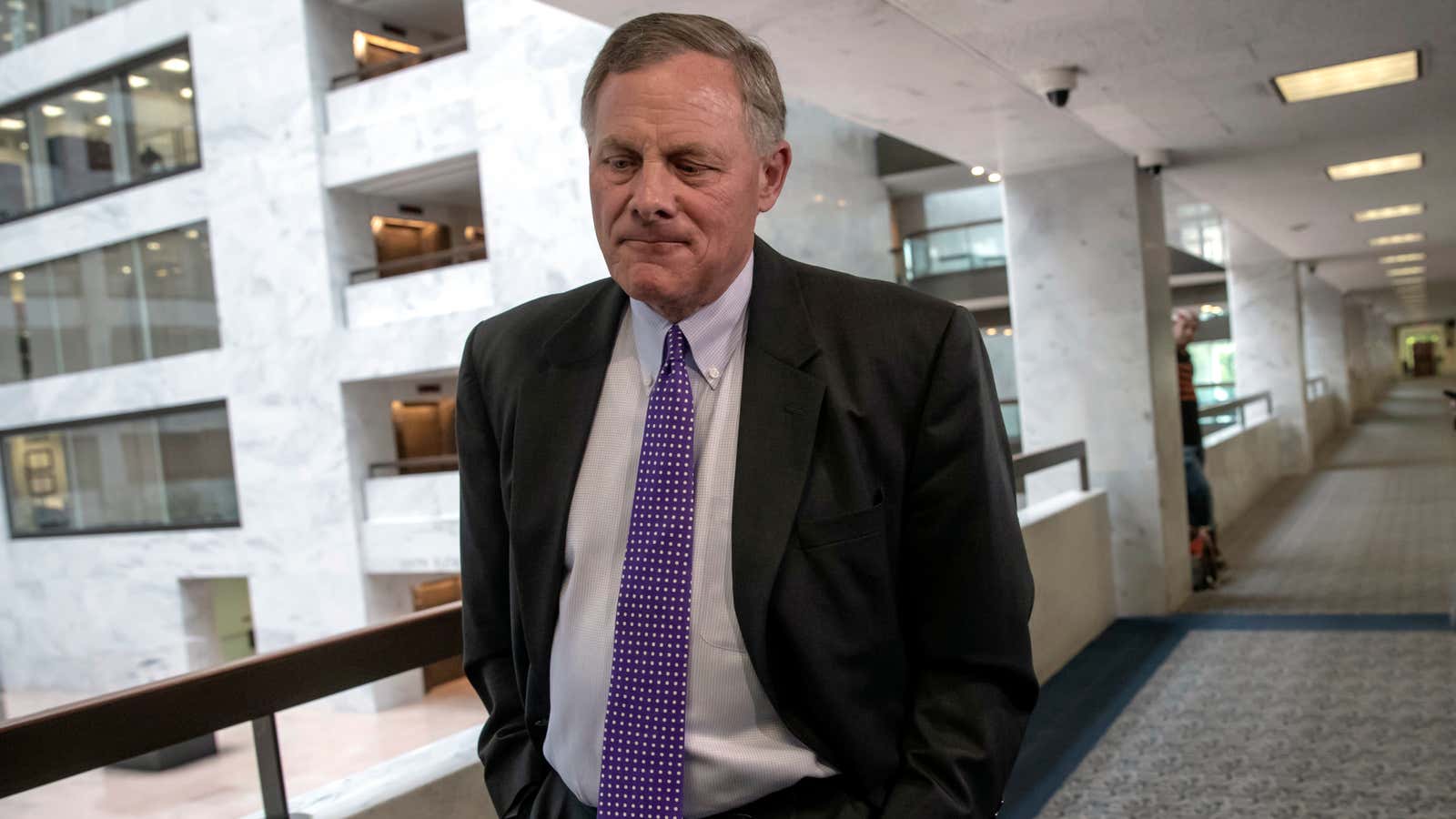Senator Richard Burr of North Carolina is in a political pickle. But did he also break the law?
NPR published a recording of the senior Republican warning constituents on Feb. 27 that the virus behind Covid-19 was dangerous and would bring serious economic disruption. But it wasn’t a public speech—it was delivered to members of a society who pay dues starting at $500 to gain entry, some of whom were donors to his campaign. At the time, US president Donald Trump was still saying the government had the virus under control, and Burr wasn’t publicly contradicting him.
“It is much more aggressive in its transmission than anything that we have seen in recent history,” Burr said privately. “It is probably more akin to the 1918 pandemic.”
A week later, he told the public that the US was “in a better position than any other country to respond to a public health threat like the coronavirus.”
Now, as the cost of delayed mass testing becomes clear with each daily increase in new infections, Burr—chair of the senate intelligence committee—is facing questions about why he warned some supporters in private instead of taking them to the public at large.
His foreknowledge may imply a financial crime. ProPublica revealed that on Feb. 13, Burr sold as much as $1.72 million worth of stock, his largest publicly disclosed sale in a period of 14 months. That allowed him to avoid the plunge in public equities that has coincided with attempts to slow the spread of the virus by keeping people apart and effectively shutting down large swathes of the economy.
During the 2008 financial crisis, lawmakers of both parties were found to have sold stock after receiving briefings from executives or government officials that had clear impact on public markets. But insider trading law was not seen as applying to lawmakers. In 2012, however, lawmakers passed the STOCK Act (Stop Trading on Congressional Knowledge) to make it illegal for lawmakers to trade on material, non-public information gained in the course of their duties. Burr was one of three senators to vote against the law, calling it “ludicrous.”
It was also intended to make more financial disclosures available online, but those provisions were quietly stripped out a year later. Still, the ban on Congressional insider trading remains in force, alongside the requirement to file disclosures every 45 days instead of annually.
Burr said in a statement today that he sold the stock in response to public media reports about the growth of the epidemic, not classified briefings. He also requested an inquiry from the Senate ethics committee to clear his name.
Yet the recording of his private remarks puts Burr in an interesting spot—arguing that he can’t have broken insider trading rules because knowledge of the forthcoming disaster was widely known, even as it is clear that his private warnings differed from his public statements.
Even if his actions were illegal under the STOCK Act, the question is whether any federal prosecutor would take on a sitting senator. Attorney General William Barr has faced calls to resign from numerous former Justice Department officials who say he is acting with a partisan bias, and few observers believe he would approve an investigation into a prominent member of the Republican Party. Beyond that, insider trading cases can be difficult to prove without e-mails, telephone transcripts or other clear evidence of the motive for the trades.
Other members of Congress also sold stock during the same period that Burr did, when the federal government was still down-playing the spreading epidemic. Senator Kelly Loeffler, a Republican from Georgia, sold as much as $3 million in stock. She also bought stock in Citrix, a software company that has benefitted from the sudden emphasis on telework. She, too, denies trading on non-public information. The trades represent a tiny share of the $500 million fortune she shares with her husband.
Other transactions appear less likely to invoke insider trading rules; several other senators sold stock or made purchases before they received briefings on the virus.
